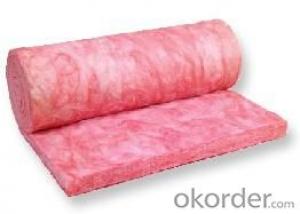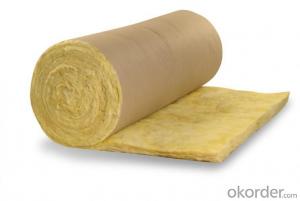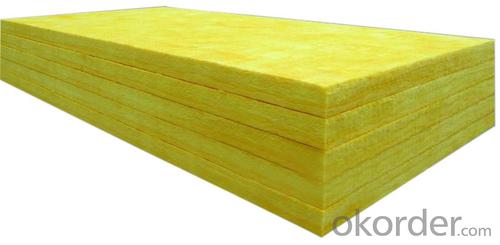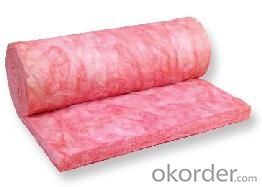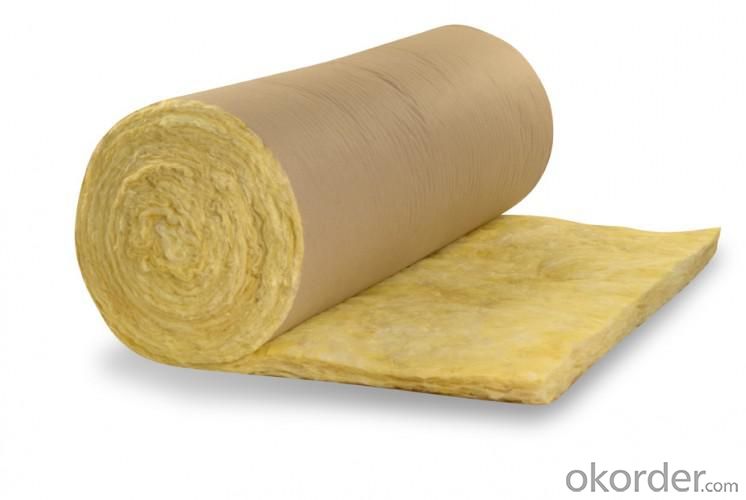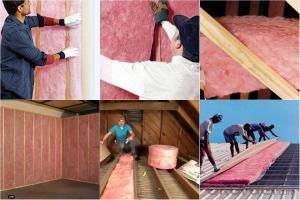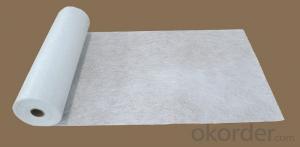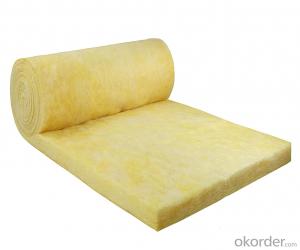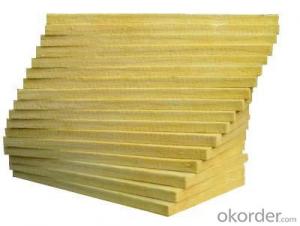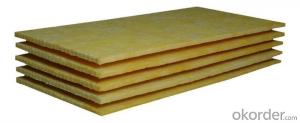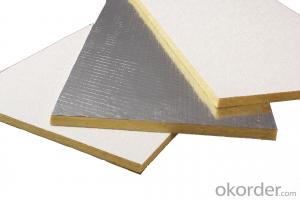Fiberglass Mat Tissue High Quality Fiberglass Insulation / Glass Wool Insulation for Roof in Construction
- Loading Port:
- Tianjin
- Payment Terms:
- TT OR LC
- Min Order Qty:
- 5000 m²
- Supply Capability:
- 20000 m²/month
OKorder Service Pledge
OKorder Financial Service
You Might Also Like
1.Description of Glass Wool Blanket:
Glass Wool Blanket complete glass wool production lines employing latestgeneration technology to manufacture boards, rolled blankets and pipes for residential and industrial thermal and acoustic insulation needs, in compliance with the top international standards (EN, DIN, ASTM).
At the system HOT END, the raw materials are dosed, mixed, melted, fiberized, impregnated with a special binder and formed into a primitive mat of very fine fiber glass. Continuous conveyors transport the mat to the COLD END of the plant for binder polymerization. The product is then cut to shape and packed for shipping.
2.Main features of Glass Wool Blanket:
1.Excellent thermal, acoustical properties
2.Light weight and easy to fabricate on job site
3.Non-combustible and fire-retardant
4.Very economical, especially when using thick layers of insulation
5.Durable, life-time and termite proof
3.Glass Wool Blanket Images:
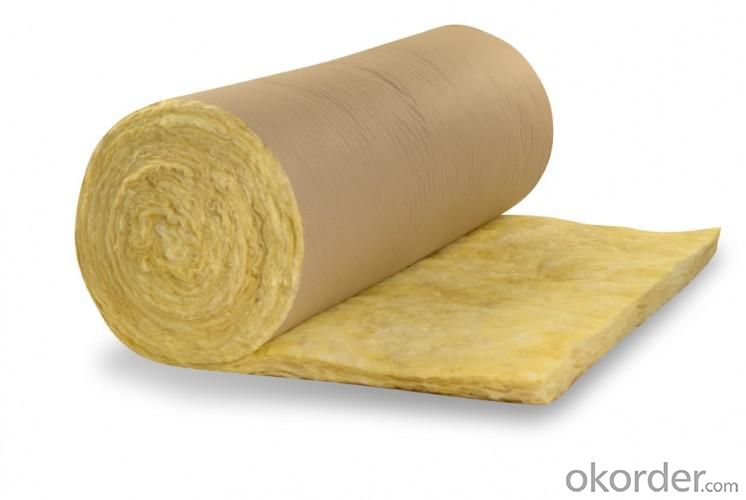
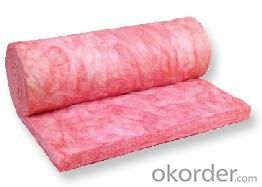
4. Glass Wool Insulation Blanket Technical Parameters:
Property | High/low temperature resistance, oil and fuel resistance, weathering resistance, O zone resistance etc. |
Shape | According to your requirement. |
Color | Any color is available ,according to your requirements. |
Material | NBR, CR, SBR, EPDM, IIR, NR, EP, Silicone, VITON etc. |
Hardness | 30-90ShoreA |
Delivery | In 10 days |
Packing | Plastic bag & carton box or according to your requirements. |
Application | Electronic field, industrial machine & equipment, house-hold appliance, telecommunication, automobile, medical equipment industry etc. |
5.FAQ 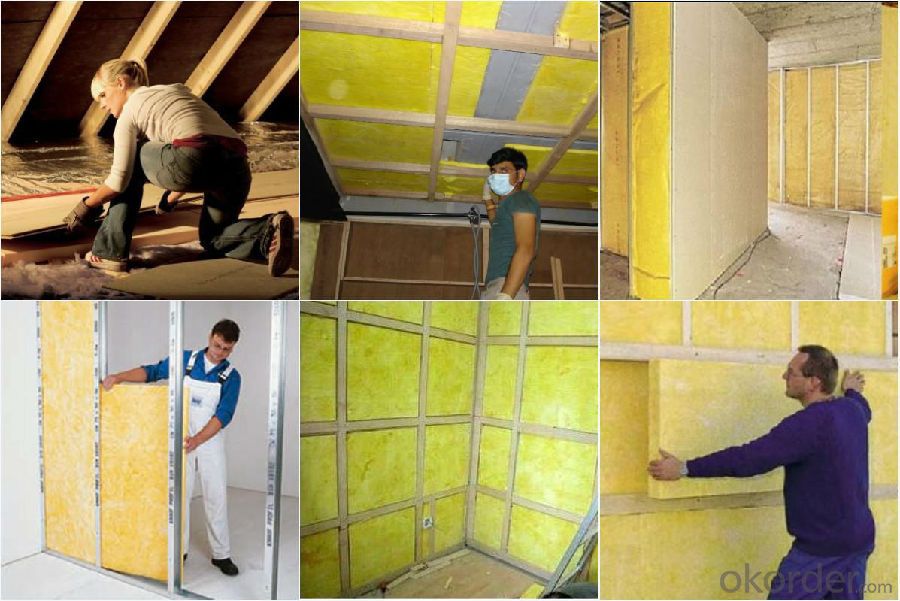
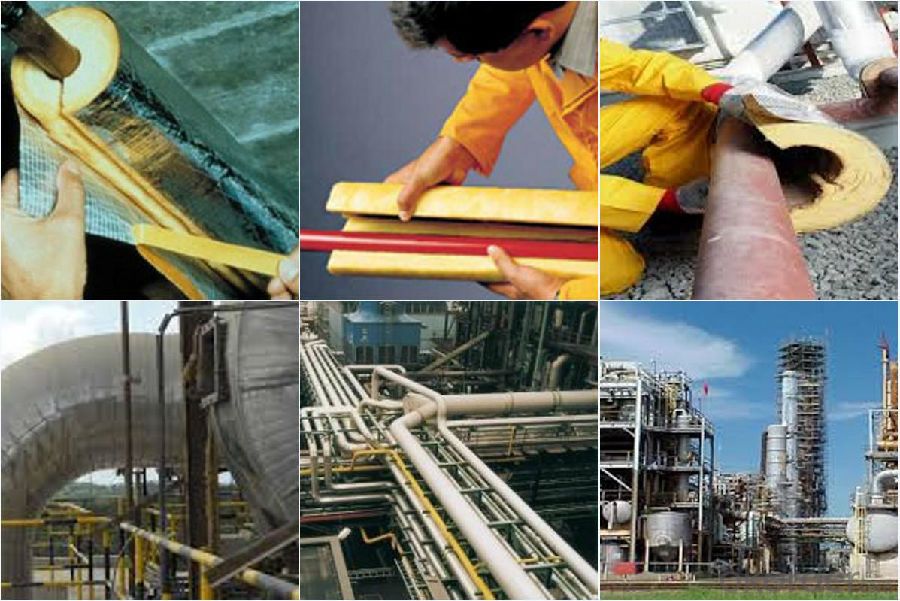
We have organized several common questions for our clients,may help you sincerely:
①How about your company?
A world class manufacturer & supplier of Glass Wool Blanket is one of the large scale professional investment casting production bases in China,consisting of both casting foundry forging and machining factory. Annually more than 8000 tons Precision casting and forging parts are exported to markets in Europe,America and Japan. OEM casting and forging service available according to customer’s requirement.
②How to guarantee the quality of the products?
We have established the international advanced quality management system every link from raw material to final product we have strict quality test; We resolutely put an end to unqualified products flowing into the market. At the same time, we will provide necessary follow-up service assurance.
- Q: What is the impact resistance of fiberglass mat tissue?
- The impact resistance of fiberglass mat tissue is quite high due to its inherent properties and construction. Fiberglass mat tissue is composed of fine glass fibers that are randomly arranged and bonded together with a binder material. This arrangement creates a strong and flexible mat that can withstand impacts and external forces. The random orientation of the glass fibers allows for the distribution of stress and energy across the entire mat tissue. When an impact is applied, the fibers absorb and disperse the force, preventing it from being concentrated in one area. This property helps to minimize the risk of cracks, fractures, or failures in the material. Additionally, the binder material used in fiberglass mat tissue provides further reinforcement and cohesion to the structure. It acts as a bonding agent, keeping the glass fibers in place and enhancing their overall strength. This bonding ensures that the mat tissue remains intact and resilient even under high impact loads. Due to its excellent impact resistance, fiberglass mat tissue is commonly used in various applications where durability and strength are essential. It is often utilized in the manufacturing of composite materials, such as fiberglass-reinforced plastics (FRP), to enhance their impact resistance and structural integrity. It is also frequently employed in the construction industry for applications like roofing, wall insulation, and soundproofing, where it provides protection against impacts and external forces. Overall, the impact resistance of fiberglass mat tissue is a key characteristic that contributes to its widespread use in numerous industries. Its ability to withstand impacts and distribute forces makes it a reliable material for applications that require strength, durability, and protection against external forces.
- Q: What are the factors that affect the diameter of electrospun nanofibers?
- Application of drug controlled release, tissue engineering, the application of biomimetic materials and artificial organs, sensor film principle: electrospinning is a polymer solution (or melt) forming process of fiber in high voltage field, its core is to take charge of the polymer solution or melt flow and deformation in electrostatic field, and then by solvent evaporation or melt cooling and solid...
- Q: Is fiberglass mat tissue compatible with different curing methods?
- Yes, fiberglass mat tissue is compatible with different curing methods. Fiberglass mat tissue is a versatile material that can be used in various curing processes, such as hot press curing, autoclave curing, and vacuum bag curing. The mat tissue is designed to be compatible with different resins and curing temperatures, ensuring that it can withstand the curing process without any adverse effects. Additionally, the mat tissue is engineered to have good wet-out properties, allowing it to effectively bond with the resin during curing. Overall, fiberglass mat tissue is a suitable choice for different curing methods and can be successfully used in a wide range of applications.
- Q: Can fiberglass mat tissue be used for wind turbine nacelles?
- Yes, fiberglass mat tissue can be used for wind turbine nacelles. Fiberglass mat tissue is a lightweight and durable material that is commonly used in various industries, including wind energy. It is highly suitable for wind turbine nacelles due to its excellent mechanical properties, such as high strength, stiffness, and resistance to corrosion and fatigue. Additionally, fiberglass mat tissue can be easily molded into complex shapes, making it ideal for fabricating the intricate components of wind turbine nacelles. Overall, using fiberglass mat tissue in wind turbine nacelles helps to enhance their structural integrity, reduce weight, and improve the overall performance and longevity of the turbines.
- Q: Is fiberglass mat tissue suitable for high-temperature applications?
- No, fiberglass mat tissue is not suitable for high-temperature applications. Fiberglass mat tissue is typically made from thin strands of glass fibers that are woven together to create a non-woven fabric. While fiberglass is known for its strength and durability, it has a low melting point and is not designed to withstand high temperatures. When exposed to high temperatures, fiberglass mat tissue can melt or degrade, leading to structural weakness and potential failure. Therefore, it is important to select a different material that is specifically designed for high-temperature applications, such as ceramic or silicone-based products.
- Q: What is the moisture resistance of fiberglass mat tissue?
- The moisture resistance of fiberglass mat tissue is high.
- Q: What are the different types of fiberglass mat tissue available?
- There are several different types of fiberglass mat tissues available, each with its own unique characteristics and applications. Some of the most common types include: 1. Chopped Strand Mat (CSM): This is the most basic and widely used type of fiberglass mat tissue. It consists of randomly oriented chopped strands of fiberglass held together with a binder. CSM is typically used in applications where strength and resilience are important, such as boat building and automotive parts manufacturing. 2. Continuous Filament Mat (CFM): Unlike CSM, CFM is made from continuous strands of fiberglass that are woven into a mat. This type of fiberglass mat tissue offers excellent tensile strength and dimensional stability, making it ideal for applications that require high strength and stiffness, such as aerospace components and wind turbine blades. 3. Surface Veil Mat: Surface veil mat is a very thin and lightweight type of fiberglass mat tissue that is used primarily for surface finishing and reinforcement. It is typically applied as a final layer in composite laminates to improve the surface smoothness and water resistance. 4. Stitched Mat: Stitched mat is made by interweaving continuous strands of fiberglass with a stitching thread. This construction provides increased strength and improved drapability, making it easier to conform to complex shapes. Stitched mat is commonly used in applications that require a combination of strength and flexibility, such as in the production of pipes and tanks. 5. Binderless Mat: Binderless mat is a specialty type of fiberglass mat tissue that does not contain any binders or resins. Instead, the fibers are mechanically bonded together using a needling process. This makes binderless mat highly resistant to chemical attack and suitable for use in corrosive environments, such as chemical storage tanks and pipes. These are just a few examples of the different types of fiberglass mat tissues available. The choice of which type to use depends on the specific requirements of the application, including strength, flexibility, surface finish, and resistance to various environmental factors.
- Q: Does fiberglass mat tissue provide good fire protection?
- No, fiberglass mat tissue does not provide good fire protection.
- Q: Does fiberglass mat tissue require any special precautions during cutting?
- Yes, fiberglass mat tissue requires special precautions during cutting. It is important to wear protective clothing, gloves, and a respirator to prevent inhaling the fine fibers that can be released during the cutting process. Additionally, using a sharp blade or scissors is recommended to ensure clean cuts and minimize the risk of fraying or splintering.
- Q: Can fiberglass mat tissue be used for reinforcing swimming pools?
- Yes, fiberglass mat tissue can be used for reinforcing swimming pools. It is commonly used in the construction of pool shells to provide added strength and durability.
Send your message to us
Fiberglass Mat Tissue High Quality Fiberglass Insulation / Glass Wool Insulation for Roof in Construction
- Loading Port:
- Tianjin
- Payment Terms:
- TT OR LC
- Min Order Qty:
- 5000 m²
- Supply Capability:
- 20000 m²/month
OKorder Service Pledge
OKorder Financial Service
Similar products
Hot products
Hot Searches
Related keywords

